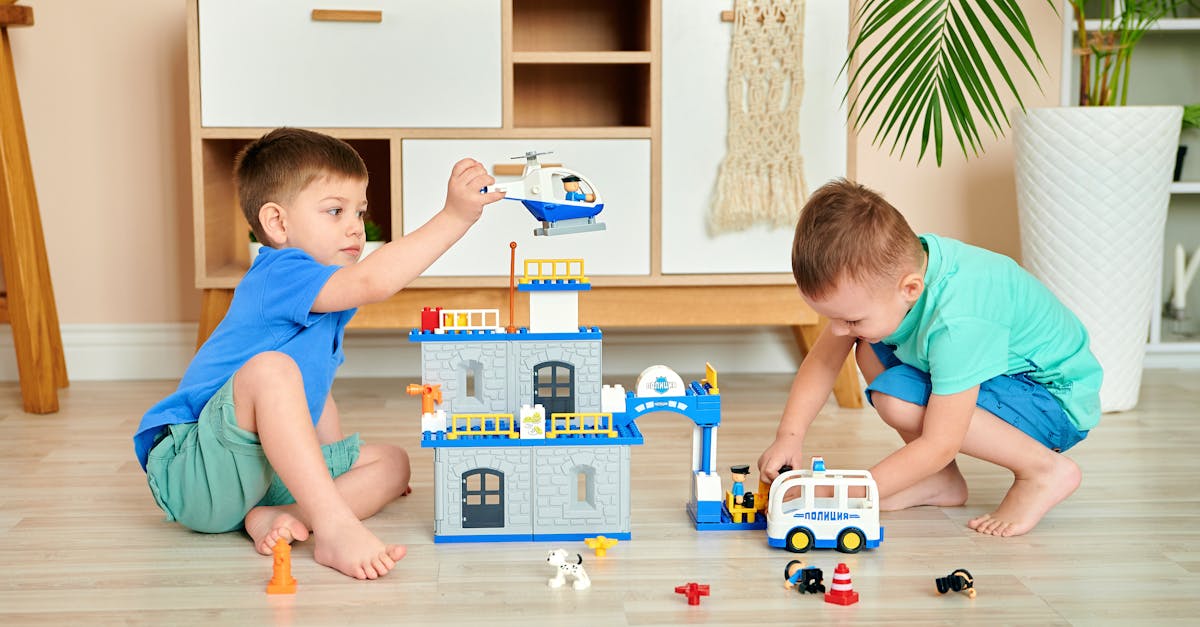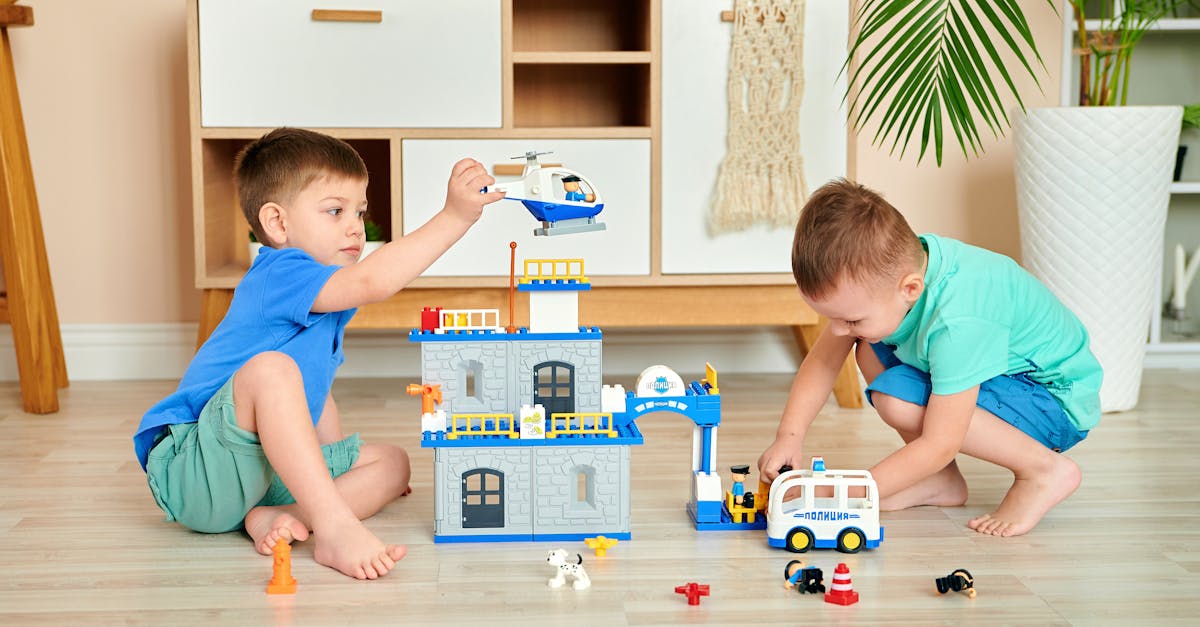Table of Contents
ToggleIn the great parenting showdown, helicopter parents hover like overzealous drones, ready to swoop in at the first sign of trouble. But what happens when these chopper-loving moms and dads clash with the more laid-back parenting styles of previous generations? The result is a fascinating—and sometimes hilarious—study of how parenting philosophies evolve over time.
Understanding Helicopter Parenting
Helicopter parenting emphasizes an excessive level of involvement and control over children. This parenting style contrasts significantly with approaches seen in previous generations.
Definition of Helicopter Parenting
Helicopter parenting refers to a style where parents closely monitor and manage their children’s lives. Instead of allowing kids to navigate challenges independently, these parents often intervene at the first sign of difficulty. This protective approach stems from a desire to ensure safety and success. Many believe it arises from a highly competitive social environment, influencing parents to be more engaged.
Key Characteristics of Helicopter Parenting
Helicopter parents exhibit several distinct traits. First, they maintain constant communication, frequently checking in on their children throughout the day. Second, they often make decisions for their kids, such as selecting classes or intervening in conflicts. Third, they provide excessive guidance on completing tasks and accomplishing responsibilities. Parents in this style frequently schedule their children’s activities, reducing opportunities for independent play. Lastly, parents may struggle to let go, resulting in ongoing oversight even during college years.
Generational Overview
Generational differences play a significant role in shaping parenting styles, including helicopter parenting. Understanding how distinct cohorts approach child-rearing reveals insights into evolving norms and values.
Baby Boomers and Helicopter Parenting
Baby Boomers often prioritize independence and self-sufficiency. This generation experienced a more hands-off approach from their parents, promoting resilience. As a result, many Boomers emphasize fostering independence in their children, despite some adopting helicopter tendencies due to fears of societal pressures. Research indicates that Baby Boomer parents tend to over-schedule their children’s activities, driven by a desire for success and competitiveness. Protective instincts often emerge, especially regarding safety and educational outcomes.
Generation X and Helicopter Parenting
Generation X navigates a different landscape, balancing personal freedom and parental responsibility. Many Gen X parents experienced latchkey childhoods, leading them to value self-reliance. However, some lean toward helicopter parenting, influenced by the rapid changes in technology and social expectations. This generation is known for monitoring children’s screen time and academic performance closely. In many instances, the desire to provide better opportunities motivates Gen X parents, resulting in an increased level of involvement in their children’s lives.
Millennials and Helicopter Parenting
Millennials exemplify a shift towards heavily involved parenting styles. With a strong emphasis on communication, these parents often maintain constant contact with their children. Many Millennials worry about their children’s emotional well-being and academic success, leading to more protective behaviors. Their upbringing in a digital age encourages them to engage with their kids through technology while striving to avoid the pitfalls of their own childhoods. This generation frequently oversees their children’s academic challenges and extracurricular commitments to ensure success.
Generation Z and Helicopter Parenting
Generation Z exhibits unique traits that influence helicopter parenting dynamics. Living in an era full of information and social media influences parents to adopt a more involved approach. Many parents of Gen Z children often fear exposing them to online dangers, resulting in heightened monitoring. This cohort is also heavily influenced by mental health discussions, leading to a more protective mindset surrounding emotional issues. Parents strive to balance guidance and autonomy, yet often grapple with their children’s need for independence in an increasingly complex world.
Factors Influencing Generational Differences
Generational differences in parenting reflect diverse influences. Societal norms often shape how parents interact with their children.
Cultural Changes
Cultural shifts play a crucial role in shaping parenting styles. Throughout the years, values such as independence and self-reliance have become highly emphasized. Baby Boomers often emphasize independence but fall into helicopter patterns due to competitive societal pressures. Millennials focus significantly on emotional well-being, advocating for open dialogue and cooperative parenting. Generation Z parents advocate for a balanced approach, navigating many cultural expectations while ensuring their children’s mental health remains a priority.
Socioeconomic Factors
Socioeconomic status influences parenting strategies significantly. Families with higher income levels may exhibit stronger helicopter tendencies due to resources available for extracurricular activities and security. Parents with less financial stability might embrace a more hands-off style, encouraging children to develop resilience and problem-solving skills. Additionally, economic pressures affect time availability, altering how parents engage with their children. Thus, economic conditions directly correlate with variations in involvement.
Technological Advancements
Technological advancements create new dynamics in parenting styles. Increased access to information allows parents to monitor their children closely, contributing to helicopter parenting behaviors. Social media platforms facilitate communication and connection but may also foster anxiety about safety and success. Generation X parents face challenges with balancing traditional methods and emerging technologies. Conversely, Millennials and Generation Z utilize technology for educational purposes while prioritizing emotional connection and awareness. This ongoing evolution leads to varying parental involvement across generations.
Effects of Helicopter Parenting
Helicopter parenting significantly impacts children’s development across various domains, including academic performance, emotional well-being, and independence.
On Academic Performance
Helicopter parenting often correlates with heightened academic pressure. Many children subjected to this parenting style experience stress due to high expectations. These parents frequently monitor their child’s academic life closely, which may foster dependence on parental guidance. Research indicates that while some children excel academically under this close scrutiny, others may develop anxiety related to performance. Students might also lack critical problem-solving skills since over-involvement limits their opportunities to learn from failures. Parents may stress achievement over genuine interest, stifling motivation for lifelong learning.
On Emotional Well-being
Emotional well-being typically suffers in children raised by helicopter parents. Continuous monitoring and protection can hinder the development of emotional resilience. Children might feel unable to cope with stressors independently, leading to heightened anxiety or depression later in life. Constant intervention can also disrupt healthy conflict resolution skills, impairing their ability to navigate relationships. Studies show that over-involved parenting leads to lower self-esteem in children, as they may equate their worth with parental approval. Additionally, children might struggle with identity formation due to the absence of personal decision-making experiences.
On Independence and Life Skills
Children raised in a helicopter parenting environment often exhibit challenges in developing independence. Lack of opportunities for self-exploration reduces their confidence in tackling unfamiliar situations. Life skills essential for adulthood, like decision-making and financial management, may remain underdeveloped. Parents who over-schedule activities limit their child’s free playtime, essential for promoting creativity and self-reliance. Research highlights that exposure to manageable risks facilitates growth and autonomy in children. Without these experiences, kids may feel ill-equipped to navigate adult responsibilities and relationships.
The evolution of parenting styles illustrates a fascinating interplay between generational values and societal pressures. As helicopter parenting becomes more prevalent, its effects on children’s development raise important questions about balance and independence. Each generation’s approach reflects its unique challenges and cultural context, shaping how parents interact with their children.
Understanding these differences can help foster healthier relationships and promote resilience in future generations. As parents navigate this complex landscape, finding a middle ground between guidance and freedom will be essential for nurturing well-rounded individuals who are prepared to face life’s challenges.







